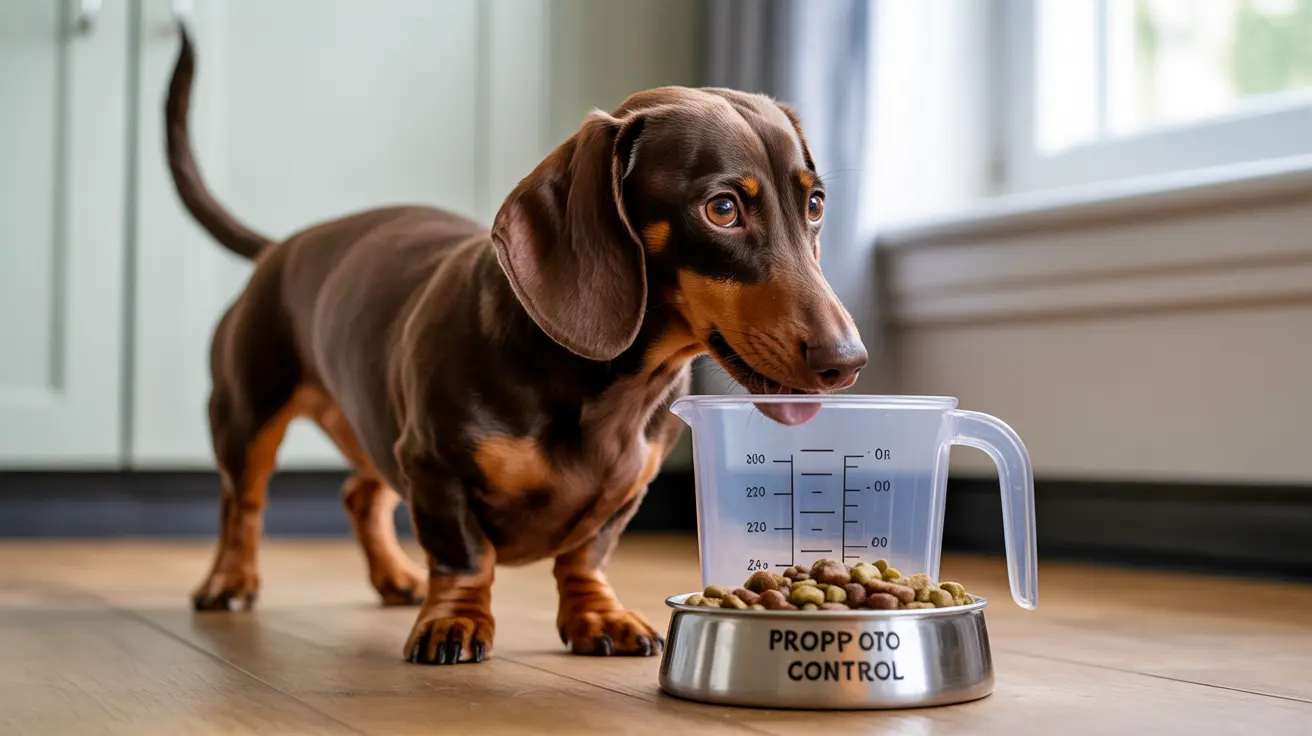Introduction
Understanding how much to feed your Dachshund is crucial for maintaining their health and preventing obesity-related issues. With their unique body structure and tendency to gain weight, following a proper dachshund feeding chart is essential for their well-being. This comprehensive guide will help you determine the right portions and feeding schedule for your Dachshund, whether they're a puppy, adult, or senior dog.
From calculating daily portions to adjusting meals based on activity levels and life stages, we'll cover everything you need to know about properly feeding your Dachshund. Let's ensure your furry friend maintains a healthy weight while getting all the nutrients they need.
Understanding Daily Portion Sizes
Adult Dachshunds typically require ½ to 1½ cups of dry food per day, divided into two meals. However, the exact amount depends on several factors:
- Size (Standard vs. Miniature)
- Activity level
- Age
- Current weight
- Health conditions
Standard Dachshunds (16-32 pounds) generally need more food than Miniature Dachshunds (under 11 pounds). Always measure portions accurately using a proper measuring cup to prevent overfeeding.
Activity-Based Feeding Guidelines
Sedentary Dachshunds
Less active or senior Dachshunds require fewer calories to maintain a healthy weight:
- 11 lbs: 1 cup daily
- 14.5 lbs: 1.25 cups daily
- 18 lbs: 1.5 cups daily
Active Dachshunds
More active dogs need additional calories to maintain energy levels:
- 11 lbs: 1.25 cups daily
- 14.5 lbs: 1.5 cups daily
- 18 lbs: 1.75-2 cups daily
Puppy Feeding Schedule
Dachshund puppies require more frequent meals throughout the day:
- 2-4 months: 4 meals daily
- 4-6 months: 3 meals daily
- 6-8 months: 2-3 meals daily
- 8+ months: 2 meals daily
Special Considerations and Health Factors
Dachshunds are prone to obesity and back problems, making proper portion control crucial. Monitor your dog's body condition regularly and adjust portions if you notice weight gain. Signs of overfeeding include:
- Loss of visible waist
- Difficulty feeling ribs
- Decreased activity level
- Heavy breathing during mild exercise
Types of Food and Mixing Guidelines
Whether you choose dry kibble, wet food, or a combination, ensure you're providing appropriate portions:
- Dry food only: Follow the feeding chart measurements
- Wet food: Approximately 540g per day for a 10kg dog
- Mixed feeding: 118g dry plus 242g wet food daily
Frequently Asked Questions
How much food should I feed my Dachshund daily based on their weight and activity level?
Adult Dachshunds typically need ½ to 1½ cups of dry food daily, divided into two meals. Adjust portions based on weight, activity level, and body condition score.
What is the recommended feeding schedule and meal frequency for Dachshund puppies and adults?
Puppies need 3-4 meals daily until 6 months of age, then transition to 2-3 meals. Adult Dachshunds should eat twice daily at consistent times.
How do I adjust my Dachshund's food portions to maintain a healthy weight and prevent obesity?
Monitor your dog's body condition score regularly and adjust portions by 10% up or down. Reduce portions if weight gain occurs and increase if your dog becomes too lean.
What types of dog food are best for Dachshunds, and how do I balance dry, wet, and raw diets?
High-quality, AAFCO-approved foods with proper protein levels are best. When mixing food types, ensure total daily calories remain appropriate for your dog's size and activity level.
How should I alter my Dachshund's diet for different life stages, health conditions, or activity changes?
Adjust portions based on life stage (puppy, adult, senior), health conditions, and activity level. Consult your veterinarian for specific dietary recommendations for health issues.
Conclusion
Following a proper dachshund feeding chart is essential for maintaining your pet's health and preventing weight-related issues. Remember to measure portions carefully, monitor your dog's body condition, and adjust amounts as needed. When in doubt, consult with your veterinarian for personalized feeding recommendations based on your Dachshund's specific needs.






